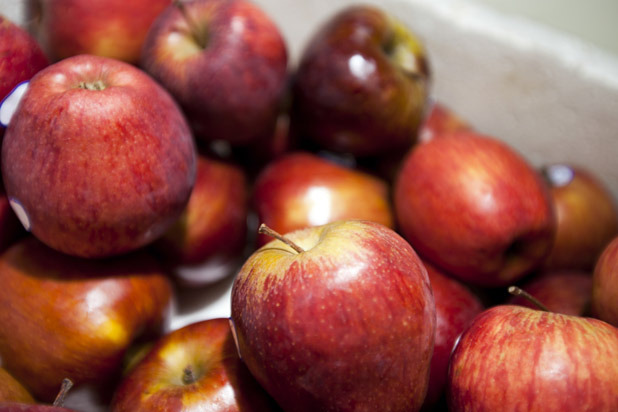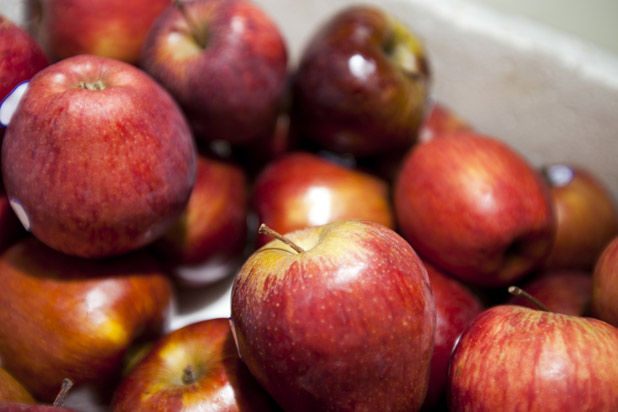10 Foods That You Should Only Buy Organic
Health-conscious eaters have been long advised to eat organic produce, but it can be cost-prohibitive to eat exclusively organic. Although there is currently no concrete scientific evidence proving that organic foods are more nutritious, organic fruits and vegetables are safer to eat because they contain a lot less chemicals and pesticides. When pesticides and chemicals are sprayed on crops, they leach into the foods and are absorbed into our bodies. We still aren't sure about the long-term effects of ingesting these chemicals, so it's a good idea to avoid them just in case.
Click here to see the 10 Foods That You Should Only Buy Organic (Slideshow)
Every year, the Environmental Working Group (EWG) comes out with a list called the "Dirty Dozen" that warns consumers about the most dangerous, conventionally grown produce. The EWG has devoted itself to raising awareness about toxic chemicals and agricultural practices. It's important to be knowledgeable about which fruits and vegetables are more contaminated than others, so these advocacy groups are necessary for public education. By avoiding the non-organic produce on this list, you'll reduce your exposure to pesticides by as much as 80 percent.
The next time you're in the produce aisle, ask yourself these questions: Can it be eaten whole? Can I peel it? Does it have a thick rind? If a vegetable is eaten whole, like a carrot or cucumber, buy organic. If it needs to be peeled, or has a thick rind, like citrus fruits, you don't need to buy organic. There is a lower chance that pesticides and chemicals have reached the edible part. Fruits eaten with skins on, like apples, berries, peaches, and nectarines are amongst the most harmful because they don't have enough protection against their chemical treatment. Similarly, celery, bell peppers, cherry tomatoes, and cucumbers are equally susceptible to this spraying process.
As a rule, remember that tree fruits, leafy greens, and berries have made the "Dirty Dozen" list every year, so it's a good idea to always eat them organic. It's also helpful to know that even the EWG acknowledges that the pros of eating plenty of fruits and vegetables, even non-organic, outweigh the negatives of pesticide consumption. The freshest produce reaps the most flavor and nutritional value regardless of how they're grown. Even better if it's local: farmers won't have to spray crops with as many chemicals if their produce isn't being shipped long distances. It's up to you to decide, depending on budget and availability, how to use this list.
Keep these "no-no" fruits and vegetables in mind when shopping for produce to avoid a high intake of harmful chemicals.
Apples
Conventionally grown apples contain the highest traces of pesticides in supermarkets than any other crop. Even after apples were washed, 48 types of pesticides were discovered by the EWG. Farmers use a wide range of chemicals on apple crops because they're highly susceptible to regional insect infestation and blights. Apple skins absorb these pesticides to fight these environmental problems, but the chemicals remain in the fruit long after harvest. In addition to organic apples not being laden with as many pesticides, their skins have been shown to contain 15 percent more antioxidants than non-organic apples.
Celery
Celery has no protective skin, so it is vulnerable to contact with insecticides and pesticides. Celery stocks are also porous, so they retain the pesticides that they're treated with, which can be up to 13 different types.
Click here to see more Foods That You Should Only Buy Organic

